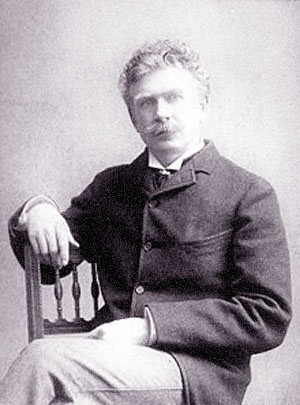Today, we commonly say, “The United States is going to Hell in a handbag” and not, “The United States are going to Hell in handbags” and think nothing of this grammatical absurdity.
It was Pulitzer Prize winning historian James McPherson, in summing up his 900 page history of the Late Unpleasantness, who famously observed that after the Civil War, the United States of America–which used to referred to in the plural in both popular writing and official texts–suddenly began to be referred to in the singular. McPherson, in Battle Cry of Freedom, also noted that after the war Americans now referred to our country as the Nation, no longer as the Union, except when referring to it in a historical sense—as in “Union forces won the war.”

In his first inaugural address in 1861, Lincoln referred to the Union 23 times, but to the Nation not once. Yet, by 1863, in the very, very brief Gettysburg Address, Lincoln refers to the Nation five times and the Union not once. Lincoln is now talking about “a new birth of freedom,”–of ONE NATION–dedicated to the proposition that all men are created equal, which shall not perish from the earth.[i]

What makes this brief homily of Lincoln’s so timeless is that every phrase is fraught with meaning, every word carries some point to it. It is not just flowery prose. When Lincoln spoke those words, he had a specific political message to convey to the North, as well as the South.
This is why generations of school children (myself included) were required to memorize this text—and if teachers are doing their job these days, still should be. Kindle or Google won’t cut it; it is one of those fundamental texts that needs to be seared into the memory, as a branding iron does to the flesh.
While I sometimes disagree with Professor McPherson on some issues, on this score I believe his argument is cogent and his observation of the is vs are is quite right.
While McPherson’s point was made decades ago, I recently stumbled across a reference to the very same point by Ambrose Bierce, eveyone’s famous curmudgeon, but also a battle-hardened veteran of the Civil War, someone who not only fought but bled for that “new birth of freedom.”

As anyone who has delved into Bierce’s life and career will tell you, one of the major problems with researching Major Bierce is that almost all of his work was originally published in serial form in newspapers and magazines, during a career spanning over forty years.
While researching Bierce’s life and work is now getting better thanks to Messrs Joshi and Schultz and a handful of other scholars, traditionally most people have only accessed the corpus of Bierce’s work via the anthologies published during his lifetime or else through his “Collected Works” which he collated late in life. All the anthologies you may have read of Bierce since then have largely been rehashes of those old tomes. In recent years, however, a few brave souls have gone back into microfilm archives of old newspapers, looking at the original articles and essays. While much in these old journalistic pieces may only be of passing historical interest, here and there one finds occasional nuggets among the dust.

When the Spanish-American War broke out, for example, it stirred the old war dog within Bierce. In between pontificating about current events in his “War Topics” column, Bierce began to ruminate about his own experiences of war. Although the Jingoism promoted by his publisher, William Randolph Hearst, grated against his last nerve, Bierce too soon got caught up in the war fever of the day.
Always the contrarian, one would not suspect from these pieces written close to the turn of the century that once Bierce was a fierce idealist and a recklessly brave soldier—but I’ll leave that for another time. More to the point, in one of his ruminations, the Devil’s Lexicographer Bierce weighed in on the whole “is” vs “are” issue. Since “Almighty God” Bierce is, by far, a better writer than I, it is best to let him make his point in his own words:
“In the light of patriotism’s altar fires, newly kindled and splendoring the Land of the Comparatively Free, I note a revival of that disgusting solecism, “the United States is,” :the United States does” etc. Actually, there are persons—writers, too—who believe that the laws of syntax are affectible by political phenomena, and that the word “States” becomes singular in number if the things that it represents are for some purposes “united.” They would not thing of saying: “The herded cows is grazing,” or “The yoked oxen is tired”—there would be no patriotism in that; and these excellent persons are, before all else, lovers of their country. (The shrillest and most raucous of them—a teacher in the public schools!—is chief proponent of the simple plan of making little children good and loyal citizens by compelling them once a week to perform monkey-tricks before the flag.) Tell them that this is not a political matter, but a grammatical, and they will put you down with “E pluribus unum,” the only Latin that they know. They will affirm (and not care a cent if overheard by the effete dynasties and tottering despotisms of the Old World) that these United States is one nation—one nation, sir, and don’t you forget it! We shall not forget it, nor are we permitted to forget that they themselves are one nuisance; yet Heaven forbid that any of us should say “These united intolerable is in danger of everlasting fire!” God sees them, and that is enough.”[ii]
[i] See James McPherson, Battle Cry of Freedom (NY: Oxford U. Press, 1988), 859,
[ii] S.F. Examiner, May 8, 1898.
Ambrose Bierce’s wartime career read Ambrose Bierce and the Period of Honorable Strife (University of Tennessee Press):

For more about Lincoln, read The Paranormal Presidency
